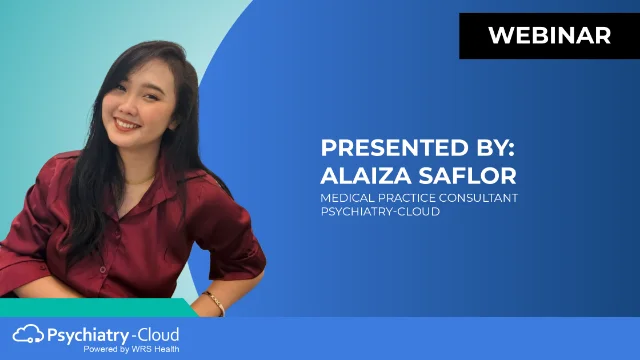Key Takeaways
- Behavioral health revenue cycle management helps practices stay financially stable while supporting patient care.
- Strong RCM for psychiatry reduces denials, supports steady collections, and lightens the administrative load.
- Practical tools like eligibility checks, coding support, and patient-friendly communication create healthier financial outcomes.
- Leverage Psychiatry-Cloud’s AI-enabled EHR to do more with less in your mental health practice.
Behavioral health practice management often feels like a balancing act. You want to focus on patient outcomes, but you also have bills, staff salaries, and your own livelihood to consider. Thin margins make it even harder. A few missed claims or repeated denials can cause stress that impacts every part of the business.
More than a brief glance at earnings once a month, effective behavioral health revenue cycle management is about your entire system, continually assessing feedback, and finding ways to leverage intelligent AI. The result is lower overhead, stronger revenue, and a practice stable enough to deliver consistent care while supporting the life you’ve built outside of work.
Table of Contents
What Is Behavioral Health RCM and Why Does It Matter?
Revenue cycle management (RCM) is the set of processes that keeps money flowing into your practice. For behavioral health, it covers everything from verifying insurance eligibility to coding sessions accurately and making sure claims get paid.
In psychiatry and mental health settings, billing can be more complicated than in other specialties. Visits may vary in length, involve therapy as well as medication management, or require codes for family sessions. If those details aren’t captured correctly, claims are often denied.
Unique Challenges in Behavioral Health Billing
- Payer fragmentation. Different insurers follow different rules, which creates confusion and slows down claims.
- Documentation complexity. Therapy notes, psychiatric evaluations, and medication follow-ups all require specific coding—such as time-based documentation for psychotherapy. Miss a detail, and a claim could be denied.
- Eligibility errors. Outdated patient demographics or unchecked insurance coverage cause unnecessary delays.
- Constant rule changes. Compliance requirements shift often, and it’s easy to fall out of step without realizing it.
These challenges drain valuable time and energy. Without a strategy in place, they also erode your bottom line and make already small margins thinner.
How Inefficient RCM Withdraws From Your Bottom Line
Every denied claim or delayed payment hurts your practice. It affects cash flow, the patient experience, and your peace of mind. Practices often see problems like:
- Denials that require lengthy and costly appeals.
- Staff bogged down with repetitive paperwork.
- Months of waiting before receiving payment.
- Lost revenue when claims are written off instead of resubmitted.
When margins are thin, inefficiencies like these make it harder to keep doors open and support patients fully. A smarter approach to RCM that uses intelligence to ensure downstream billing compliance keeps money moving so you can focus on the people in your care.
Components of a Strong Behavioral Health RCM Strategy
A strong approach to behavioral health revenue cycle management begins well before you begin a visit with a patient. It starts with front-end verification, making sure demographics and insurance eligibility are confirmed at the time of scheduling. From there, accurate coding plays a central role—session length, type of therapy, and medication management must all be reflected correctly to avoid costly denials.
Equally important is the use of automated claim checks, which review information before a claim is submitted to catch errors that would otherwise cause delays. Clear patient communication also supports a healthy pipeline, giving individuals a straightforward understanding of their responsibilities so balances don’t linger. Finally, proactive denial tracking ensures that when claims are rejected, they are quickly identified and resubmitted rather than written off. Together, these elements create a process that reduces denials in behavioral health and supports predictable, stable income.
How Psychiatry-Cloud EHR Supports Your Financial Health
Psychiatry-Cloud was built with RCM needs in mind, weaving behavioral health billing services and revenue optimization directly into the EHR.
- AI-powered eligibility verification at scheduling confirms coverage and patient responsibilities up front.
- Intake tools capture demographics and insurance details accurately, eliminating front-desk bottlenecks.
- Real-time AI coding advice reduces the risk of undercoding and overcoding during documentation.
- Automated claim workflows keep billing moving in the background without extra staff effort.
Earning More With Less
Financial squeeze is a reality in practice management, but it doesn’t have to hold you back. With the right RCM strategy and tech partner, you can reduce denials in behavioral health, optimize collections, and safeguard the future of your practice. Psychiatry-Cloud delivers the support and intelligence to run a sustainable business, built into the everyday tasks you already do through smart automation and design.











